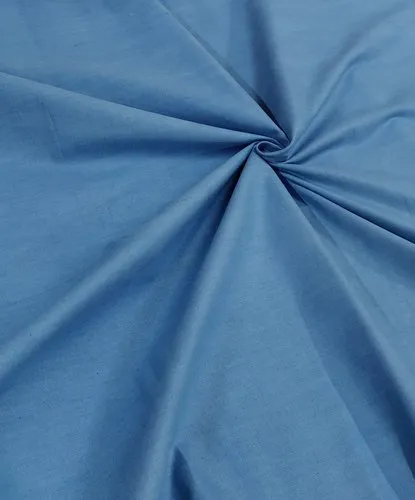Handloom Cotton Fabric
₹750.0
Color: Yellow
Prints/Pattern: Plain/Solids
Fabric Content: 100% Cotton
Usage: Kitchen Clothing, Apparel/Clothing, Ethnic Wear/Dresses, Accessories/Bags
Packaging Type: Than
Country of Origin: Made in India
Width: 62 inches.
Handloom Cotton Fabric
Key features of eco-friendly garments include:
Eco-friendly clothing encompasses various aspects that make it a conscientious choice for both consumers and the environment. These aspects include:
Eco-friendly clothing often incorporates materials like organic cotton, hemp, Tencel, or recycled fibers. This deliberate choice reduces the need for pesticides and harmful chemicals during cultivation or production.
Manufacturers of eco-friendly garments prioritize water-efficient production processes. These practices aim to significantly decrease water consumption, particularly during the dyeing and finishing stages.
Sustainable fashion brands actively strive to reduce their carbon footprint. They achieve this by adopting renewable energy sources and employing efficient manufacturing methods.
Brands committed to sustainability ensure fair and safe working conditions for the individuals involved in the production of eco-friendly garments. This includes the guarantee of fair wages and the provision of safe work environments.
Environmentally responsible dyeing and printing methods are employed to minimize the use of harmful chemicals and reduce water waste.
Sustainable clothing brands design their garments with a focus on long-term use. This involves emphasizing quality, timeless designs, and durability to discourage disposable fashion trends.
Eco-friendly clothing can either undergo recycling or naturally break down, thereby significantly reducing textile waste in landfills.
Many brands source materials and manufacture their garments locally, reducing transportation-related carbon emissions.
Handloom Cotton Fabric
In summary, eco-friendly garments are emblematic of a move toward a more ethical and sustainable fashion industry. By choosing these clothing items, consumers play a pivotal role in promoting a cleaner, more responsible fashion ecosystem while still enjoying style and comfort.
For instance, consider our ‘Handloom Cushion Cover Set,’ meticulously designed to enhance the sophistication of your living spaces. Crafted from eco-friendly fabrics, these cushion covers not only effortlessly complement a range of decor styles but also add both style and sustainability to your home. Eco-friendly clothing can either undergo recycling or naturally break down, thereby significantly reducing textile waste in landfills.
You must be logged in to post a review.
Q & A
Sustainability and ethical practices in handloom weaving are crucial for various reasons. Consumers, businesses, and policymakers can play a significant role in promoting and encouraging these practices within the handloom industry: Handloom weaving is often deeply rooted in the cultural heritage of communities around the world. Ethical practices help preserve these traditions and support the livelihoods of artisans. Ensuring that weavers and artisans are paid fair wages and work in safe and healthy conditions is a fundamental aspect of ethical practices. This helps reduce exploitation and poverty in weaving communities. Sustainable practices in handloom weaving involve using natural and eco-friendly materials, minimizing waste, and reducing the use of harmful chemicals in dyeing and finishing processes. This reduces the environmental impact of the industry.
General Inquiries
There are no inquiries yet.


















Reviews
There are no reviews yet.